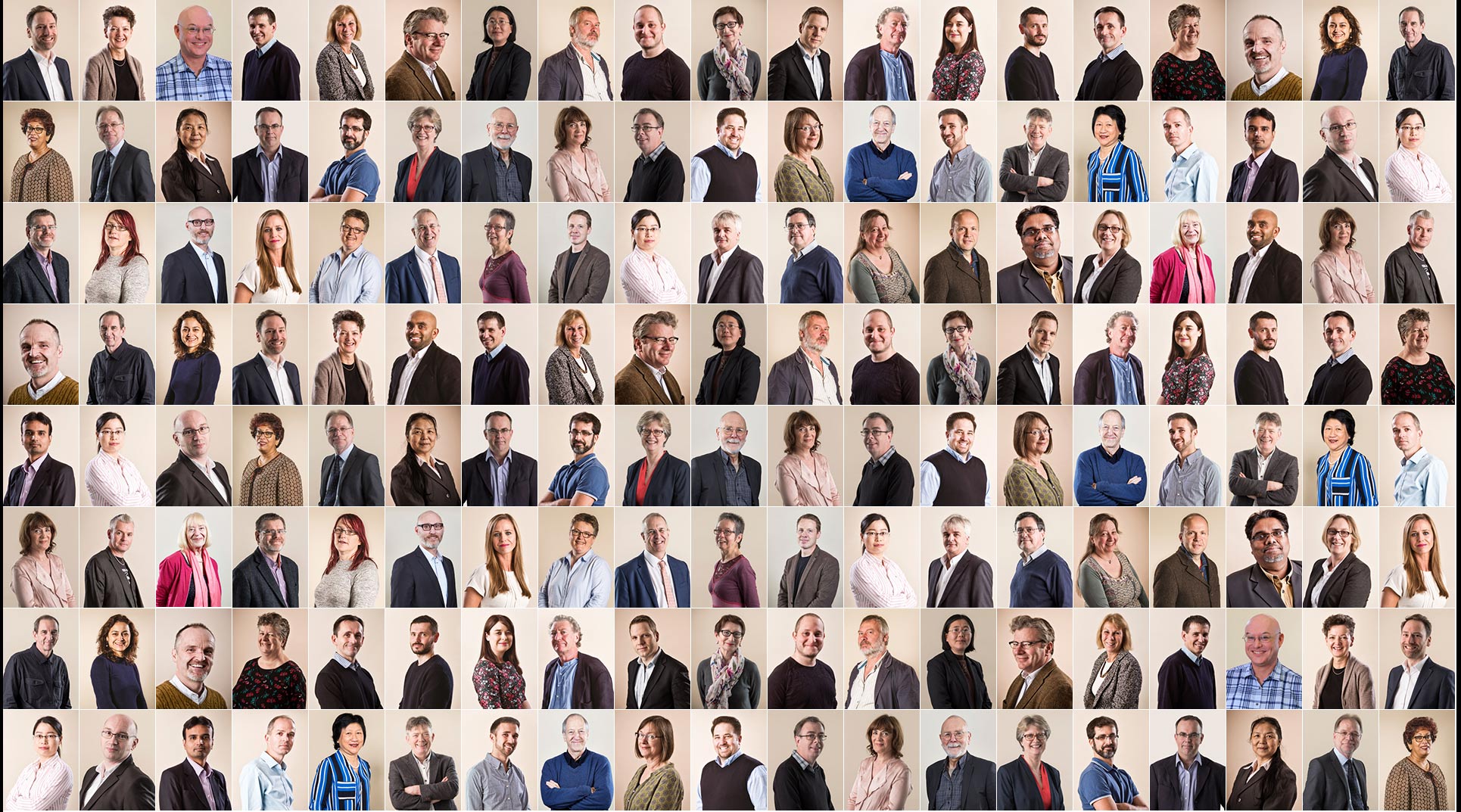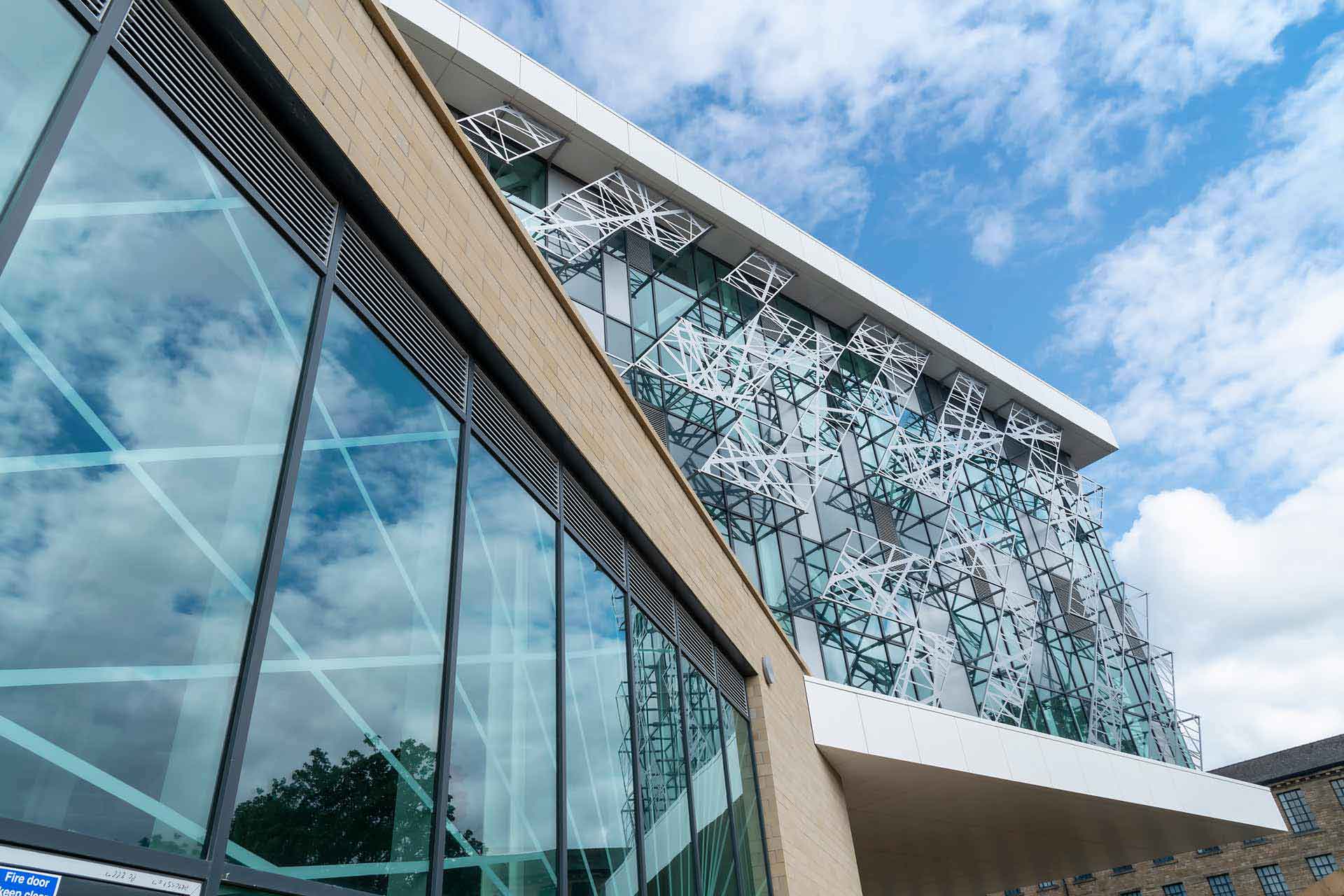
UoA 12 - Engineering
UoA 12 - Engineering
The University has long-established links with engineering and manufacturing industries, dating back to the precursor Huddersfield Mechanics Institution formed in 1843. These links remain strong and Engineering is, by some margin, the largest area of research activity within the University.
The UoA is based wholly within the University’s School of Computing and Engineering and consists of six key research areas:
The Centre for Precision Technologies (CPT) is a large and well-established research team focused on aspects of engineering associated with precision manufacturing and, specifically, manufacturing metrology. Activity is broadly organised into four groups: Surface Metrology, Engineering Control and Machine Performance, Bio-metrology, and Optics Manufacturing, with extensive collaboration across these groups. CPT is host to the EPSRC Future Metrology Hub and additionally has a wide portfolio of programmes with EPSRC, EU, Innovate UK, RAEng, and direct industry funding.
The Institute for Railway Research (IRR) is another well-established research team with a focus on railway vehicle interaction with track and infrastructure, research topics include various aspects of suspension, wheel-rail contact, traction and braking, and track. As part of the current Research England funded UKRRIN project, IRR is also extending its portfolio to include pantograph/overhead-line interaction. The IRR has grown rapidly over the assessment period and has a very strong reputation within the rail industry, working closely with a wide group of industry partners to improve rail safety, performance and efficiency. This was recognised in 2020 with the award of the Queen’s Anniversary Prize, for research and development that has brought significant improvements to the railway industry. This network of industry and academic contacts also extends internationally, and IRR is actively involved in European rail collaborations and networks.
The Centre for Efficiency and Performance Engineering (CEPE) is a large and diverse group conducting research across subject areas including diagnostics, thermo-fluids, signal processing, and power engineering. This group has a strong international reputation and long track-record in the condition and performance monitoring of industrial assets such as rotating equipment (motors, pumps, compressors, turbines, etc.). The group has strong international networks with other research groups in the field and a long track-record of industrial collaboration, with an active portfolio of Innovate UK and direct industry funded research programmes. During the period, the group has developed new interests in thermoacoustic technologies, electrical power, green energy and powertrain applications, and also works increasingly across engineering and computer science disciplines. CEPE has recently begun a strategic partnership with TWI for 12 PhD joint scholarships.
The Ion Beam Centre (IBC), made up of two core groups in the fields of Accelerators and Electron Microscopy and Materials Analysis. Much of this group’s work is a multi-disciplinary combination of engineering, physics and materials. The group has a strong international reputation around innovative particle accelerator development and the use of particle accelerators for probing the properties of materials. This work is conducted using the group’s extensive research infrastructure and these facilities (‘MEIS’ and ‘MIAMI’) are part of the EPSRC UK National Ion Beam Centre.
The Centre for Audio and Psychoacoustic Engineering (CAPE) specialises in the study of auditory perception and its application in audio engineering and music technology. In particular, CAPE is active in researching the perception, recording and reproduction of audio for immersive 3D and VR formats, and has specialist facilities including a 3D audio reproduction room, to support this work.
The Centre for Engineering Materials (CEM) is a multidisciplinary centre with members of staff from across several schools and UoAs. Staff associated with the Centre are undertaking research in new material synthesis, characterisation of materials, and the development of material applications across wide-ranging sectors such as healthcare, energy, transport, textiles and food processing.

Staff

Impact

Institutes and Centres